My memory and recall are alarmingly good – borderline photographic. But when I used Instagram, I found it would short-circuit my recall in an alarming way. I’d be describing something mid-sentence and I’d just stop speaking, unable to finish. So I rarely use it.
But my attention span – and my posture, eyes and sleep – are still being degraded by other technology and my dependence on it. In my pandemic life, technology is a lifeline – 90% of my social and work life happens on one of four screens.
I’m flirting with the idea of giving up social media and maybe even ... texts. I am fascinated by people like Justine Haupt, a quantum communications engineer who has never owned a smartphone. She also builds and sells rotary cellphones. Yes, rotary cellphones.
What would my life be like if getting in touch with people required me to communicate with purpose, memorize numbers again, and dial with my fingers, instead of, accidentally, my butt?
For my sake – and yours – I sought inspiration from people who have already crossed into a more analog life.
Morgan Richardson, 30, nurse in a Covid unit in Los Angeles. Has no social media.
Man, the stories I could tell you of being a young woman with no social media. People get crazy, they get so mad at me!
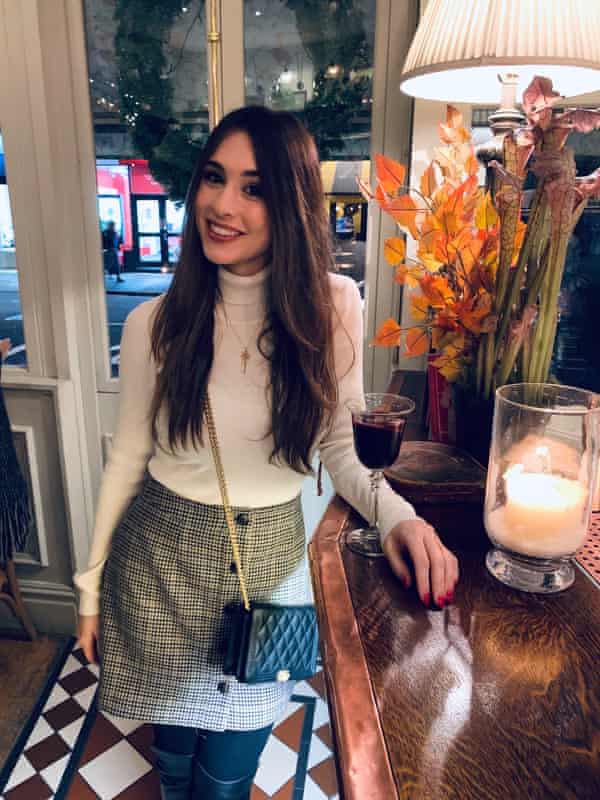
I have a partner, but when I was dating, people thought I was a catfish because I don’t have social media. I’m fairly good-looking and people would think: “She’s lying, she just has secret accounts that she uses to stalk people with, she is self-absorbed.” No, I just don’t have social media. They don’t even ask me why.
The things I’ve been able to accomplish in a short amount of time with no social media is insane. I’m in school right now and work full-time. I’m getting ready to apply to master’s programs. And because I don’t have social media, I don’t waste my time. I’m not bombarded with people constantly taking away my time from me. I put it towards myself and my goals.
Women are blown away that I don’t online shop. I don’t feel the urge; I don’t have the constant bombarding of ads. I don’t have my notifications on my phone. Not a single app. When I get text messages, my phone vibrates. That’s it.
I get better sleep. My attention span, I think, is great. I definitely see my other friends reaching for their phones, looking for their phones, looking on social media, even in nursing school. I would just study for hours and hours and they wanted a break. I got a 4.0. I would just work hard and I wasn’t distracted.
Brian Markowski, 39, cybersecurity expert and host of the Sovryn Tech podcast in Portsmouth, New Hampshire. Gave up all social media.
I’ve been messing with computers since I was six years old. I’m fortunate in that I’ve seen the path of the personal computer revolution. This is great that we’re all interconnected, and amazing what we can do online. But then you start to notice what adds up to net negatives. You realize, do I even have the time or attention to read a book any more? Do I even have the time or attention required to read an article?
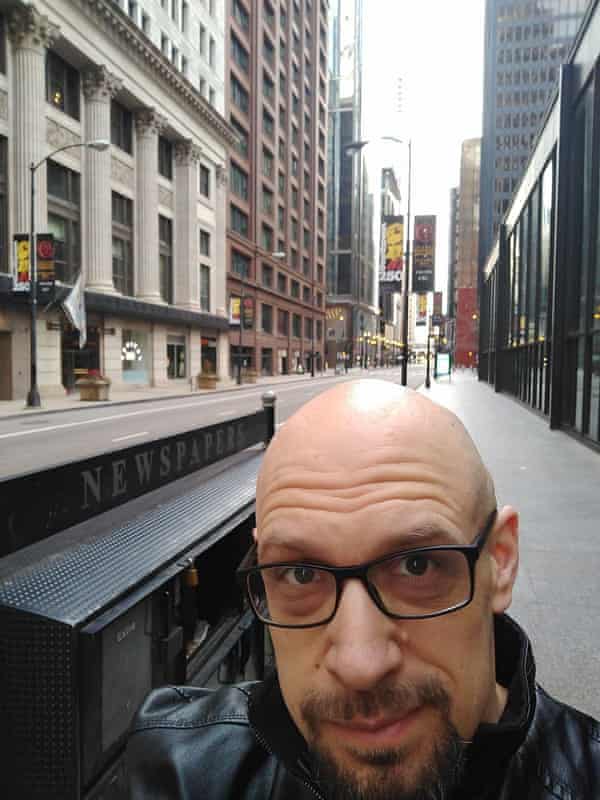
When I would talk to people in real life, a lot of them would be saying: “Hey, did you see what this person said on Twitter?” or “Did you see what this person said on Facebook?” It was really shocking, because the online life ultimately means nothing. I could ask them: “Do you remember what you tweeted five minutes ago?” Nobody could remember.
It seemed like nobody was actually living. I remember being young and not wanting to listen to my grandparents – I didn’t want to hear about their stories. Now, I’m dying for their stories because they’re real. They actually lived and did things that were memorable, instead of and being constantly upset or amazed at what happened on social media.
Twitter was my main thing for years. I started in 2010. I finally put a stop to that at the end of 2020. I had about 11,000 followers and would probably spend a good two to four or five hours a day on there. It’s like a bad relationship. At some point, you’re like, okay, that’s it. That’s enough. No matter what redeeming qualities, I just can’t do this any more.
You’re happier as you walk away. My mental health has actually never been better.
Meaghan Connaire, 36, dog sitter in Middletown, New York. Gave up Facebook and Instagram; banned from Twitter for insulting Trump.
I deleted my Facebook and Instagram after the death of my only child in labor at nine months on 29 July 2017. I would scroll for hours in my grief, bitter and angry at everyone who had living children.
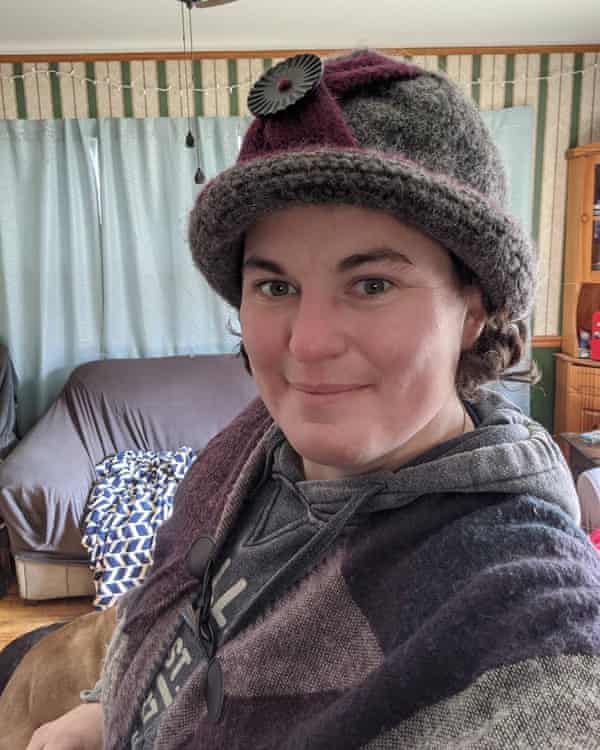
When I joined grief groups after Bernard died, there was always at least one troll who would mock my loss or blame my pro-choice activism for his death. One woman told me that I deserved to have my son die because I support a woman’s right to choose. That was the final straw.
I realized that nothing in this social media hellscape was going to help me because even in so-called “safe spaces” I was met with vitriol and hatred in the exact time I needed understanding and comfort.
I was eventually diagnosed with ADHD and that diagnosis helped me understand how social media not just affected my mood and emotions but also was a dopamine factory for my brain. Once I removed Facebook and my original Instagram account, I found that I was able to actually work on my sleep hygiene – instead of scrolling endlessly, I could put on a sleep meditation video and fall and stay asleep easily for the first time in a very long time.
I can read books again and retain the information in them a lot better than I did before. I’m reading two to three books a week. Before, I was lucky if I read two to three books a year. I’m able to take classes online that truly interest me, like Celtic mythology and herbal medicines.
Aden Capps, 21, English major at the University of California, Berkeley. Went from an iPhone 6 to a flip phone.
In college, I wanted to lower the noise around me. Most of my friends do have social media handles, but a few of them aren’t on social media. One of my friends is in the same position as me: he has a flip phone and no social media.
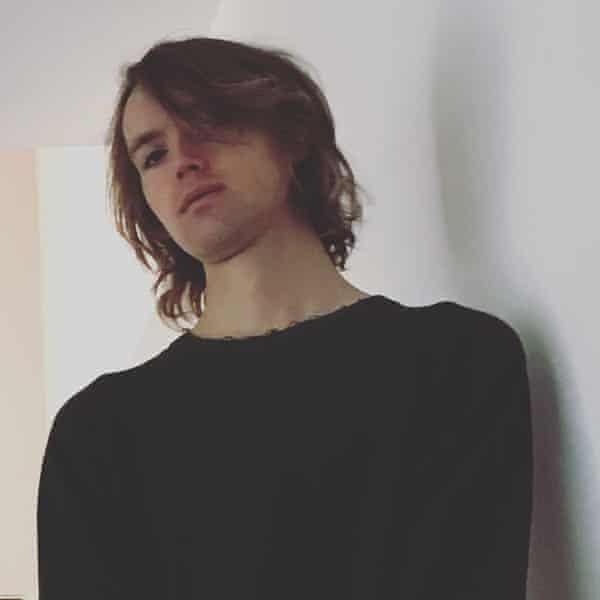
I’m not currently dating, but I have had relationships while using a flip phone. If anything, it’s been a positive thing.
My junior high, coming of age, during which I started to have feelings for the opposite sex, was totally enmeshed in internet chatting and social media – Instagram mainly. I conflated those two things entirely. Instagram and girls were in a similar part of my brain, and Instagram was the vehicle to reach out to girls. “Likes” and comments were really significant. It was horrible, because the ambiguity of a comment or a “like” is just capable of tormenting people. It’s really an unnatural way of going about relationships, in my opinion.
Dating offline now is as challenging as it was for my dad. That’s how I think of it. But I feel like it’s just the right way to do it. It just rings truer.
I think people are kind of taken back sometimes [being approached in person] because it is an older way of doing it, but I think it’s sincere enough. It’s just a natural thing. Maybe it’s a good thing, being approached by someone who’s talking to you with their face right in front of you.
Sharon Baldessari, 32, works in technology sales in New York. Gave up Instagram last year; gave up Facebook in 2016.
About six months ago, I removed Instagram from my phone for the first time. Surprisingly, I have not missed it.
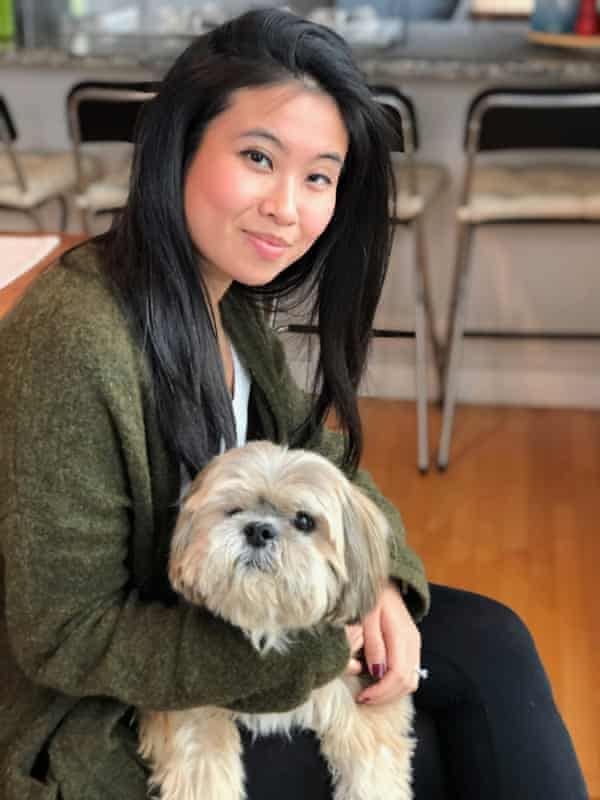
During the initial months of the pandemic, Instagram felt uplifting. I kept seeing wonderful and hilarious ways people were not letting their spirits be killed.
That seemed to change this June, right around the time of George Floyd’s murder and when the black square went viral in solidarity with Black Lives Matter (BLM). I felt enormous pressure to post it even though I didn’t know what it meant. I felt like an invisible hand was compelling me to repost – otherwise, it would mean I didn’t care about BLM and that I was a racist. I realized this was absurd, and I rejected being completely defined as a person by what I posted or didn’t.
I also realized, shamefully, how few Black, Indigenous and people of color (BIPOC) I followed. I then found many accounts telling people to stop posting the black square! I did appreciate that this episode caused me to diversify the voices I was listening to.
But soon after, I started to see horrendously hateful comments on the accounts of almost every public figure I followed – whether the account was a food blogger or a fitness queen. They were all thrown cyber daggers for either not speaking up enough, speaking up too much, or saying the wrong thing about Black Lives Matter. A fitness influencer who has always been inspiring to me posted something in support of BLM, then received a message wishing her unborn child would die! That was probably the moment that finished Instagram for me.
A month after quitting, I wondered if I should go back. I started reflecting on my motives. Even though I was never that popular on it – I don’t think I ever reached more than 100 likes for any post – there was something about the “likes” that I subconsciously must have obsessed over. I asked myself why everything I did needed to be seen. Why do I feel this need to show people?
I didn’t like this realization about myself, and I decided not to feed into it any more.
from Lifestyle | The Guardian https://ift.tt/3jC0wTl
via IFTTT

comment 0 Comment
more_vert